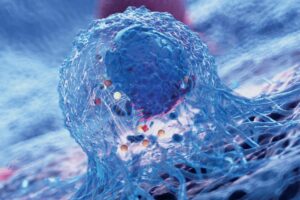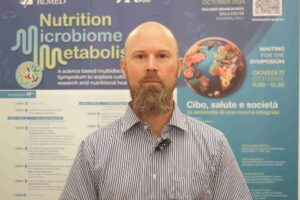What is already known
Antibiotics kill bacteria that cause infections, but they also wipe out helpful microbes that protect our body from pathogens, leading to diarrhea, gut inflammation and a greater susceptibility to infection.
What this research adds
Researchers analyzed the microbiota dynamics in 24 people with multidrug-resistant tuberculosis who received a combination of antibiotics for up to 24 months. During the first 6 months, the antibiotic treatment resulted in a depletion of gut microbes and an enrichment of pathways associated with inflammatory conditions. However, the abundance of commensal bacteria was rapidly restored by the end of the treatment. Further experiments showed that antimicrobial-resistance mutations evolved in both pathogenic and commensal bacteria. Both groups competed for gut colonization, but the commensal strains eventually prevailed.
Conclusions
The findings suggest that antimicrobial-resistance mutations in commensal bacteria can make the microbiota surprisingly resilient to antibiotics.
Antibiotics save lives, but their uncontrolled use can contribute to the development of resistant pathogens. Now, researchers have found that, just like harmful microbes, gut bacteria can also adapt to antibiotics after months of drug use.
The work, published in Science Translational Medicine, suggests that commensal microbes are surprisingly resilient to antibiotics. “These findings demonstrate that antimicrobial-resistance mutations in commensals can have paradoxically beneficial effects by promoting microbiome resilience to antimicrobials,” the researchers say.
Antibiotics kill bacteria that cause infections, but they also wipe out helpful microbes that protect our body from pathogens, leading to diarrhea, gut inflammation and a greater susceptibility to infection.
So far, it has been unclear whether commensal bacteria become resistant to antibiotics in the same way that many pathogens do. To examine how long-term antibiotic exposure affects the microbiota, researchers led by Shakti Bhattarai at UMass Chan Medical School in Worcester, Massachusetts, analyzed the microbiota dynamics in 24 people with multidrug-resistant tuberculosis who received a combination of antibiotics with broad antimicrobial activity.
Antibiotic disruption
The study participants were treated with the antibiotics bedaquiline, linezolid, levofloxacin, clofazimine and pyrazinamide for 6 months. Some of the drugs were continued for up to 24 months.
Over time, the researchers observed a reduction in the bacterial load of Mycobacterium tuberculosis, the causative agent of tuberculosis, in mucus produced by the lungs of the patients.
During the first 6 months, the antibiotic treatment also caused a depletion in the gut microbiota, with a loss of species including Bacteroides uniformis, Blautia spp., Clostridium bolteae, Dorea longicatena, Eubacterium halli and Feacalibacterium prausnitzii, which are involved in the production of beneficial metabolites such as short-chain fatty acids and vitamins. Between 2 weeks and 6 months of treatment, the team found an enrichment of pathways associated with inflammatory conditions.
“Together, these data indicate that [multidrug-resistant tuberculosis] treatment has an initial rapid effect on the taxonomic and functional output of the microbiome, with depletion of Clostridia and their associated pathways and enhancement of inflammatory pathobionts,” the researchers say.
Commensal resilience
Although antibiotics initially disrupted the patients’ gut microbiota composition, the abundance of commensal bacteria was rapidly restored by the end of the treatment, the researchers found.
Further experiments showed that antimicrobial-resistance mutations evolved in both pathogenic and commensal bacteria. Both groups competed for gut colonization, but the commensal strains eventually prevailed. “The reestablishment of commensal domination, despite resistance mutations in both pathobionts and commensals, suggests that commensal fitness is superior if antimicrobial resistance emerges,” the researchers say.
When transferred into mice, gut microbes from people undergoing antibiotic treatment retained resistance to bedaquiline, the team also found. “Our study provides a paradigm by which commensal resilience to antibiotics can be potentially leveraged to paradoxically counter [anti-microbial resistance].”











